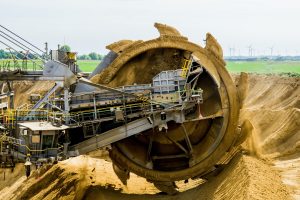Not sure Why is gold mining illegal in Peru? Well, Gold mining is illegal in Peru due to detrimental environmental impacts, unregulated practices, and the promotion of illegal activities, resulting in deforestation, pollution, and social conflicts.
Gold mining has been a topic of great significance and controversy, particularly when it comes to its legality in various countries.
One such nation that has grappled with the issue of illegal gold mining is Peru.
Situated in South America, Peru boasts a rich history and abundant natural resources, including significant gold deposits.
However, in recent years, the country has been facing a challenge in curbing the illegal extraction of gold.
This article delves into the reasons behind the illegal status of gold mining in Peru, exploring the environmental, social, and economic consequences associated with this illicit activity.
Why Is Gold Mining Illegal In Peru?
Gold has been a symbol of wealth and prosperity for centuries, driving exploration, trade, and even conquest. Peru, blessed with substantial gold reserves, has seen both legal and illegal gold mining activities. However, the illegal practices have brought about grave concerns due to their multifaceted impact on the environment, society, and economy.
The Environmental Impact of Illegal Gold Mining
Illegal gold mining often involves methods that harm the environment. The use of toxic chemicals like mercury and cyanide for extraction contaminates water sources, affecting aquatic life and posing health risks to humans. Deforestation to clear land for mining contributes to habitat loss and disrupts fragile ecosystems. Additionally, the release of greenhouse gases from mining machinery exacerbates climate change.
Social Consequences of Unregulated Gold Mining
Communities near illegal gold mining sites suffer immensely. Unregulated mining leads to land disputes, displacing indigenous people and disrupting their way of life. Criminal organizations involved in illegal mining often exploit vulnerable populations, leading to human rights abuses. Moreover, the influx of miners can lead to increased crime rates and the spread of diseases.
Economic Ramifications and Losses
While gold mining can be a significant source of revenue for countries, illegal activities undermine the economy. By evading taxes and royalties, illegal miners deprive the government of much-needed funds. Legitimate mining companies also face unfair competition from these rogue operations. Furthermore, the negative reputation associated with illegal mining can deter foreign investments.
Government Initiatives and Challenges
The Peruvian government has taken steps to combat illegal gold mining, including deploying law enforcement personnel to affected areas. However, enforcing regulations in remote and often inaccessible regions proves challenging. Corruption within law enforcement agencies and insufficient resources hinder effective enforcement efforts.
International Collaboration and Its Role
Illegal gold mining is a transnational issue, as illegally obtained gold can enter the global market. Collaborative efforts between countries, NGOs, and international organizations are essential to track and curb the flow of illicit gold. The “Minamata Convention” aims to reduce mercury use in mining and improve regulations.
The Significance of Responsible Gold Mining
Responsible gold mining practices can help mitigate the negative impacts of mining. Using environmentally friendly extraction methods and ensuring fair labor practices can contribute to sustainable development. Certification programs like the “Fairmined” label promote responsible gold sourcing.
Alternatives to Unlawful Gold Mining
To address the root causes of illegal gold mining, governments and organizations can focus on providing alternative livelihoods for affected communities. Supporting ecotourism, sustainable agriculture, and other industries can help reduce the economic incentives for illegal mining.
Balancing Conservation and Economic Growth
The challenge lies in finding a balance between conserving the environment and promoting economic growth. Properly regulated gold mining can contribute to a country’s development while minimizing harm. This requires comprehensive policies that consider the long-term effects on the environment and society.
FAQs
- Is all gold mining in Peru illegal?
- No, there are legal gold mining operations in Peru, but illegal mining remains a significant challenge.
- How does illegal gold mining affect the environment?
- Illegal gold mining harms the environment through deforestation, water contamination, and greenhouse gas emissions.
- What are the social consequences of illegal mining?
- Illegal mining disrupts communities, leads to land disputes, human rights abuses, and an increase in crime rates.
- Can responsible gold mining benefit the economy?
- Yes, responsible gold mining practices can generate revenue, create jobs, and attract investments while minimizing negative impacts.
- What is the Minamata Convention?
- The Minamata Convention aims to reduce mercury use in various industries, including gold mining, to protect human health and the environment.
Conclusion
Illegal gold mining in Peru presents a complex issue that intertwines environmental, social, and economic concerns. Striking a balance between these facets is crucial for the country’s sustainable development. Collaborative efforts, responsible mining practices, and alternative livelihoods can pave the way for a brighter future.
Recent Posts
Choosing the best 80 watt soldering iron for electronics can dramatically improve your workflow, precision, and soldering quality. Whether you’re a beginner hobbyist, DIY repair enthusiast, or...
Kenya’s Deputy President Kindiki’s Luxury Cars Maybachs Raise Questions Amid Public Struggle
Corruption and inequality continue to dominate Kenya’s political landscape, leaving ordinary citizens frustrated and disenfranchised. Recently, Deputy President Kithure Kindiki made headlines after...